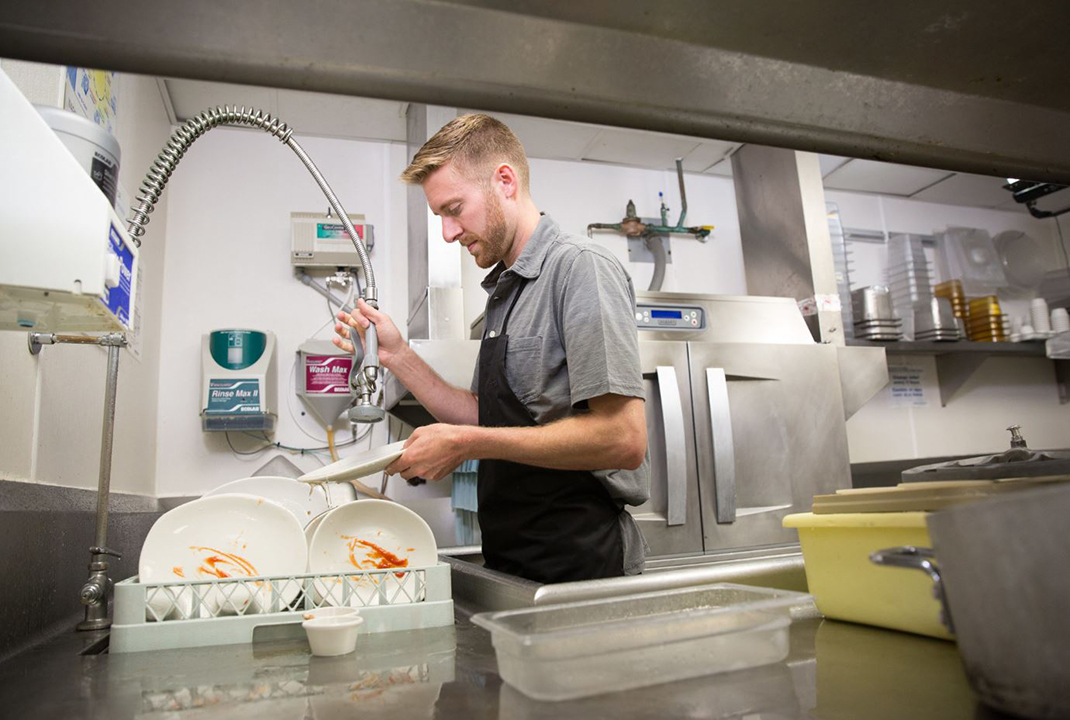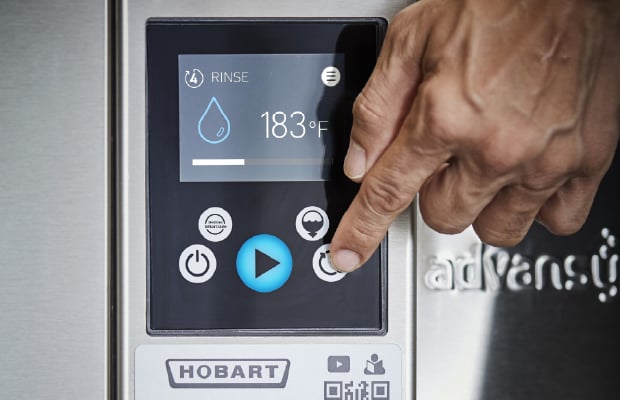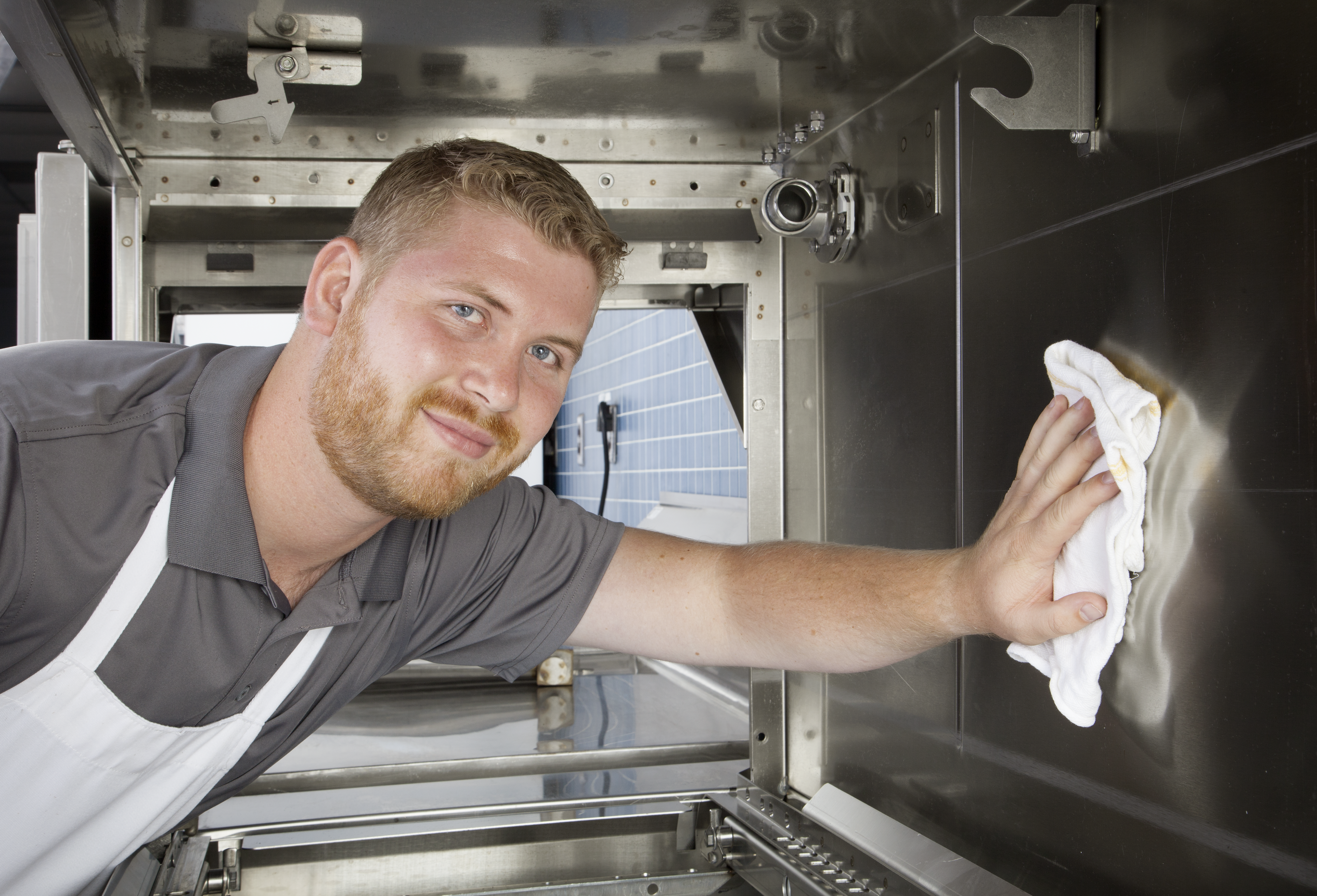Every piece of equipment in the foodservice kitchen needs to be properly used and maintained. Improper use and poor maintenance can slow an operation down, and even lead to downtime, with major disruptions to daily business.
With the possible exception of the cooking equipment, nothing in the kitchen gets used more than the dishwasher. From the before-opening prep work until the last diner’s silverware is washed, the dish machine is working throughout the day. So it’s important that proper maintenance and cleaning procedures be followed to keep the dish machine at peak performance.
Do's and Don'ts of Dishwashing
Here are some “do’s and don’ts” for the care and operation of your commercial dishwasher to keep it delivering peak performance:
- Prescrap dishes thoroughly, removing any large particles of debris.
- Place the ware in a plastic dishrack and be sure to leave adequate spacing between items so water and chemicals can reach all parts of the ware.
- At the end of each operating day, clean the machine thoroughly. Check, empty, rinse, and replace the machine’s scrap basket, rinse it and leave the machine door open to dry. Make sure that the wash arms and nozzles are clean.
- Ensure your water is at the proper level of hardness (3 grains per gallon is recommended).
- Use only commercial dishwashing chemicals recommended by your chemical provider. Do not use detergent made for home dishwasher use. And remember to use gloves and eye protection when handling chemicals.
- Deliming the machine is critically important. Follow the deliming schedule recommended by the manufacturer.
- Never exceed the recommended concentration of detergent, sanitizing solution, rinse additive or lime scale remover. Overusage of any of these products can be harmful to long-term machine performance.
- For machine cleaning, use only products that are formulated to be safe for stainless steel. Never use steel wool to clean warewasher surfaces.
It’s also important to have staff trained on proper machine operation. While many commercial dishwashers are easy and intuitive to operate, a well-trained operator can help spot little problems before they become big ones. Training videos and wall charts provided by the manufacturer can be helpful staff aids.
Of course, the most important factor in having a high-performing dishwasher is the machine itself, like the entire line of Hobart commercial dishwashers. These dependable dishwashers include advanced technologies, and most are ENERGY STAR® certified. Take the Hobart Advansys™ dish machines, for example. They help save water, chemical and energy usage, and even labor time, thus reducing the total cost of ownership. With features like Ventless Energy Recovery, Automatic Soil Removal and Drain Water Energy Recovery, they combine unsurpassed cleaning performance with ease of operation. What’s more, every Hobart dishwasher is backed by a nationwide service network to help keep your machine at peak performance. Those are just some of the reasons why Hobart Advansys machines have been awarded the National Restaurant Association’s Kitchen Innovation and What’s Hot! What’s Cool! awards, and the Best in Class award from Foodservice Equipment & Supplies magazine for 17 consecutive years.





.png)


%20proc%20%20(1).jpg)


